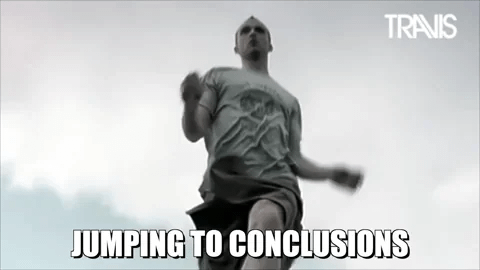17 Questions to Reorient YourselfOpportunities for change can be useful, even when you didn't ask for them.
Life presents an endless series of opportunities for change. (Just look around, right?) External circumstances can come along and offer you these chances, when you thought something was going to happen and then the opposite occurred. Other times, you just find yourself dissatisfied internally—and you know something should shift. Either way, it can be useful to notice these opportunities. They can be useful to you, even if you didn’t want them to show up! For all of these situations, I wrote a short list of questions that might help you reorient. Some people will be best served by reading and reflecting on all of them, but for most of us (including me), it’s usually better to focus on a few that resonate. Whatever you choose, think about how the questions land and ponder your answers. 1. What am I feeling right now?Emotions are data, not directives. They give you important information about your current state, but they don't have to control your next steps. (Also, even the uncomfortable emotions are worth paying attention to. In fact, sometimes those are the most important ones.) 2. What are the most pressing thoughts on my mind?Sometimes just getting it all out of your head makes a difference. No need to solve everything—just notice what's actually there. Journaling can be particularly effective here. Write down each thought without judgment. 3. What’s the one thing I need to focus on to feel like I’m making progress?Not everything needs to happen at once. Find the thread that, when pulled, might help the rest begin to unravel. 4. What am I grateful for in my current situation?This isn't about forced or toxic optimism; it’s about seeing the full picture. Even difficult moments contain unexpected gifts. When I’m feeling discouraged or depressed, I sometimes write down 3-5 things I’m especially grateful for. You can always find SOMETHING. 5. What would I tell my closest friend if they were in my position?Sometimes we're smarter when we're not talking to ourselves. We often know exactly what to say when it's not our own struggle. (And we also tend to be more compassionate.) Consider what advice you’d give a friend facing the same issue. Then, see if you can offer yourself that same kindness and understanding. 6. What’s one small action I can take right now that might make things a little easier?Just like there’s always something to be thankful for, there’s always something you can do. Think in increments—sometimes one tiny action is enough to start a shift. 7. What would "future me" want "present me" to know about this moment?Time brings perspective. Imagining how we might view this situation later can help us respond more wisely now. See also: 8. What am I assuming that might not actually be true?Our minds fill in gaps with assumptions, often pessimistic ones. Questioning these assumptions can open up new possibilities we didn't see before. Pause and challenge your automatic beliefs. 9. What am I waiting for permission to do?Sometimes we're waiting for a green light that isn't coming. Ask yourself, “What’s stopping me from starting on this right now?” 10. If today were my last day, how would I want to spend it?Imagining your last day doesn’t mean something drastic has to happen right away—it just highlights what’s worth your attention right now. Priorities become clearer when time feels finite. See also: 11. How am I being of service to the world? (What am I doing to help?)Make something and help someone, right? Consider at least one way to bring ease to someone’s day. If nothing else, it’s a good way to get out of your own head for a moment. 12. What would change if I gave myself more time?Rushing rarely helps. Some problems solve themselves if we let them. Pause and reconsider if moving faster is actually the answer. 13 . What might I learn from this situation?Often, the lessons are unexpected! And sometimes they take time to arrive. (For me, I tend to be a slow emotional processor, and I end up thinking—sometimes overthinking—about what I should learn from difficult situations. But I know that it’s usually worth working through the process.) 14. Am I holding onto any assumptions or beliefs that no longer serve me?Maybe this time is a chance to let go, move on, or otherwise transition. That’s what reorientation is all about! 15. What's the part of this experience I don't want to admit?Again, uncomfortable truths often hold useful information. What we resist looking at might be worth examining 16. What would this look like from a decade away?Distance changes perspective—sometimes it helps to borrow some. 17. What story will I tell about this later?The middle of the story feels different than the end, and how we frame experiences impacts how we process them. Consider that you’re shaping the narrative of your life as it unfolds. As I said, most people won’t relate to or take something from every question. The point is that sometimes just asking better questions can help you find your way back to solid ground. What can you do to reorient yourself? Conversation Starters1. Which question resonates most with you right now? 2. What question would you add to the list? 3. How do you help yourself reorient when things feel overwhelming? You’re currently a free subscriber to 🌻 A Year of Mental Health. For the full experience, consider upgrading! |
Monday, November 18, 2024
17 Questions to Reorient Yourself
Subscribe to:
Post Comments (Atom)
House panel wants charges filed vs Duterte et al. for 'crimes against humanity'
After months of grueling inquiry, the quad committee finds a 'harrowing narrative of abuse of power and institutional impunity' for ...

-
insidecroydon posted: " Become a Patron! What's on inside Croydon: Click here for the latest events listing...








No comments:
Post a Comment